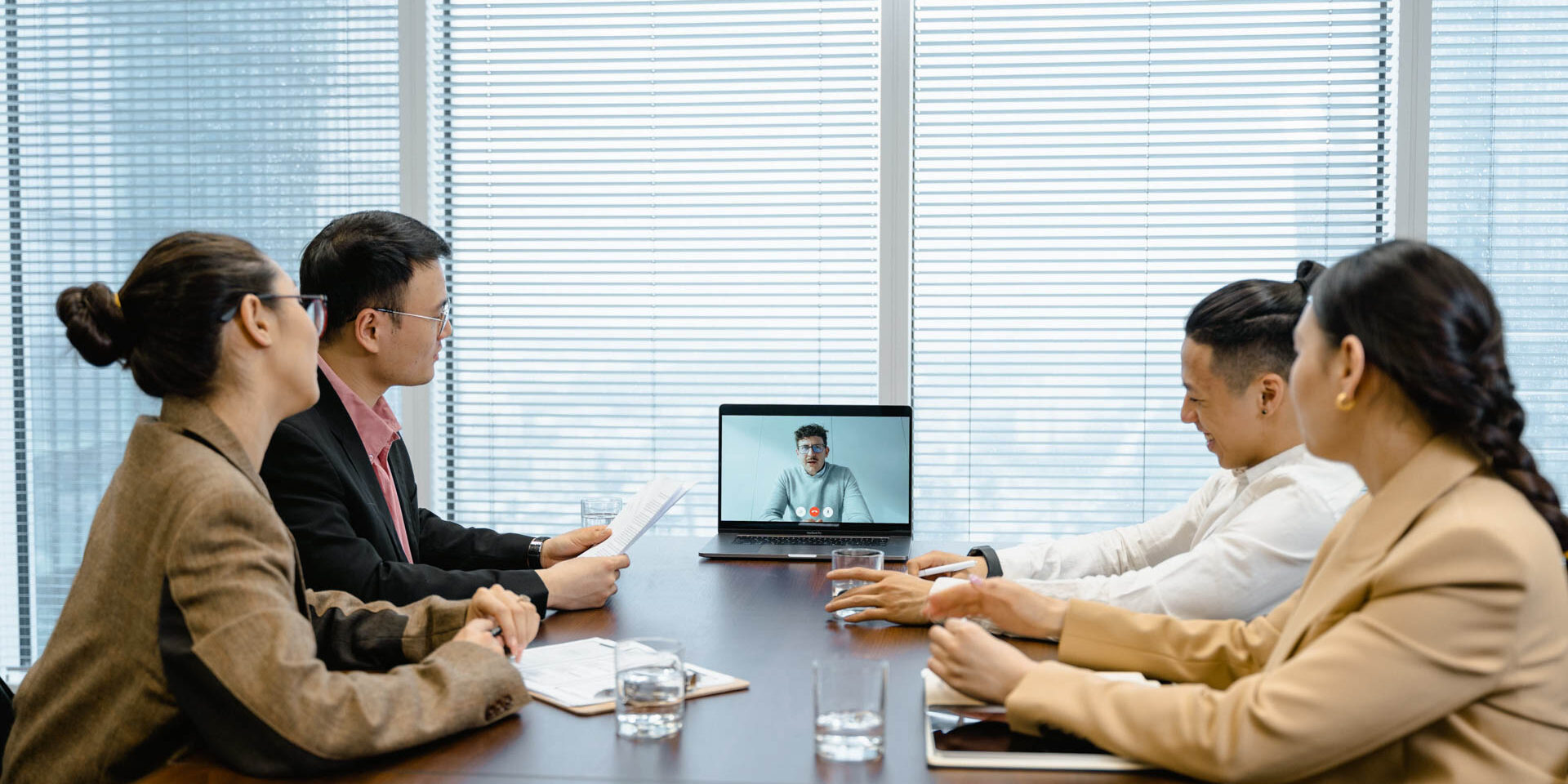In today’s fast-paced digital world, expressing gratitude and appreciation has become increasingly rare. However, a simple act of showing appreciation towards someone through a letter can have a significant impact on someone’s life. A letter of appreciation conveys your gratitude towards an individual, acknowledging their contributions, kindness, or accomplishments.
Definition of Letter of Appreciation
A letter of appreciation is a written communication that expresses your gratitude towards an individual, acknowledging their contributions, kindness, or accomplishments. It can be sent to anyone who has made a positive impact on you, including colleagues, mentors, friends, family members, or even strangers.
Importance of sending a letter of appreciation
Expressing gratitude through a letter of appreciation is an act of kindness that can make a significant impact on someone’s life. It can build strong relationships, boost morale, increase productivity, and create a positive work or personal environment. Moreover, it shows that you value and appreciate the efforts put forth by others and encourages them to continue their good work.


Benefits of sending a letter of appreciation
Sending a letter of appreciation has various benefits. Firstly, it strengthens the relationship between you and the person you are expressing gratitude towards. It also boosts morale and motivates the recipient to continue their good work. Furthermore, it creates a positive environment, which can lead to an increase in productivity and a decrease in negativity.
Writing a letter of appreciation is a simple yet powerful way of showing gratitude towards someone. It allows you to express gratitude and acknowledge the contributions, kindness, or accomplishments of others. Therefore, taking the time to write a letter of appreciation will not only benefit the recipient, but it will also make you feel good, knowing that you have made a positive impact on someone’s life.
Types of Letter of Appreciation
When it comes to expressing gratitude and appreciation, there are several types of letters of appreciation that you can write depending on the context and the tone you want to convey. Here are the most common types:
Formal Letter of Appreciation
A formal letter of appreciation is a letter that follows a specific format, usually used in a professional setting, such as the workplace or an organization. It should have a clear and concise tone, and it should follow the standard business letter format, including the sender’s and recipient’s address, date, salutation, body, and closing.
A formal letter of appreciation is usually sent to express gratitude for a specific action or achievement, such as completing a project, meeting a deadline, or providing exceptional service. It should focus on the accomplishments of the recipient and recognize their hard work and dedication.


Informal Letter of Appreciation
An informal letter of appreciation, as the name suggests, is a more casual and relaxed type of letter that you can write to a friend, family member, or colleague. It doesn’t require a strict format, and you can use a more conversational tone to express your gratitude.
An informal letter of appreciation is an excellent way to show your appreciation for something that someone has done for you or simply to acknowledge someone’s presence in your life. It can be as simple as expressing your gratitude for their friendship or as specific as thanking them for helping you move into your new house.
Personal Letter of Appreciation
A personal letter of appreciation is a type of letter that you can write to someone close to you, such as a spouse, parent, or child. It’s an opportunity to express your heartfelt thanks and appreciation for everything they do for you.
A personal letter of appreciation should focus on the relationship between the sender and the recipient and the specific things that the recipient has done to support and help the sender. It can be as simple as expressing your gratitude for their love and care or as detailed as thanking them for being there during a challenging time.
Professional Letter of Appreciation
A professional letter of appreciation is a type of letter that you can write to someone in a professional setting, such as a mentor, colleague, or business partner. It should be concise and professional in tone, and it should focus on specific accomplishments or contributions that the recipient has made.


A professional letter of appreciation can be an opportunity to recognize someone’s hard work, dedication, and expertise. It can be as simple as acknowledging their valuable insights during a meeting or as detailed as thanking them for their contribution to a successful project.
Writing a letter of appreciation is an excellent way to show your gratitude and appreciation for someone’s efforts or contributions. Depending on the context and the relationship with the recipient, you can choose the type of letter that best suits your purpose and convey your message effectively.
Example of Letter of Appreciation
In this section, we will provide various examples of letters of appreciation that can serve as a guide in writing your own letter. We have categorized the examples into formal, informal, personal, and professional letters of appreciation.
Step by step guide in writing a letter of appreciation
Before we proceed to the examples, let’s go over some general steps in writing a letter of appreciation:
- Start with a greeting or salutation.
- Express your gratitude or appreciation for the recipient’s actions or contributions.
- Provide specific examples of what the recipient did that you are thankful for.
- Share how the recipient’s actions had a positive impact on you or others.
- Conclude your letter with well wishes or a closing statement.
- Sign your name.
Example of formal letter of appreciation
Dear [Recipient’s Name],
I am writing this letter to express my deepest appreciation for your exemplary service to our company. Your dedication and hard work have not gone unnoticed and are greatly appreciated by everyone here.
Your professionalism and exceptional contributions have been instrumental in the success of our recent project. Your attention to detail, efficiency, and performance sets the standard for excellence in our company.


Once again, thank you for your tireless efforts and for being an invaluable member of our team. We look forward to continued success with you.
Sincerely,
[Your Name]
Example of informal letter of appreciation
Hey [Recipient’s Name],
I just wanted to take a moment to thank you for all your help the other day. Your willingness to jump in and lend a hand made all the difference and truly saved the day.
Your positive attitude and ability to make things happen make you an amazing person to work with. I feel grateful to have you as a co-worker and friend.


Thanks again for being awesome!
Warmly,
[Your Name]
Example of personal letter of appreciation
My Dearest [Recipient’s Name],
I wanted to take the time to write you a letter of appreciation to express how much you mean to me. Your unwavering support and love have been a constant source of strength through tough times.
Your kindness, compassion, and understanding have made a huge impact in my life. I am grateful for your presence and for all the little things you do that make our relationship so special.


Thank you for being my everything.
With love,
[Your Name]
Example of professional letter of appreciation
Dear [Recipient’s Name],
I want to express my sincere appreciation for the exceptional service you provided during our recent business engagement. Your professionalism, expertise, and attention to detail were impressive and played a significant role in achieving our goals.


Your commitment to excellence and your ability to deliver under pressure are truly remarkable. Your contributions are valued and greatly appreciated.
Thank you for being a trusted partner and for helping us achieve success.
Elements to Include in a Letter of Appreciation
As a seasoned copywriter and subject matter expert, I have written countless letters of appreciation throughout my career. From my experience, there are several essential elements that should be included in every letter of appreciation:
Greetings and Salutation
The first step is to address the recipient of the letter. This includes the proper salutation such as “Dear [Name]”, “To [Name]”, or “Greetings [Name]”. It is important to include the correct spelling of the person’s name and their appropriate title.
Opening Paragraph
In the opening paragraph, start by expressing your gratitude for the recipient’s contribution, support, or dedication in a particular area. It may be a specific project, task or their overall work performance. This sets the tone for the rest of the letter.
Body of the Letter
In the body of the letter, expand on your initial gratitude by providing specific examples of how the recipient’s actions have impacted you or the organization in a positive way. This is also an opportunity to highlight the recipient’s unique strengths and talents.
Expression of Gratitude or Appreciation
The body of the letter should contain a clear and sincere expression of appreciation, highlighting the recipient’s contributions and expressing why they deserve recognition. This can include phrases such as “I cannot thank you enough” or “I am immensely grateful for your dedication”.
Specificity and Details
Including details that pinpoint what specifically the recipient did to deserve the appreciation is essential. This helps to demonstrate the impact of the recipient’s actions and makes the letter more personal and meaningful.
Complimentary Close
The complimentary close is a way to bring the letter to a close in a positive and respectful way. Some common examples include “Sincerely”, “Best regards” or “Yours truly.” When choosing a complimentary close, select one that is consistent with the tone of the letter.
Signature
Finally, it’s essential to sign the letter with your full name and include your job title, organization and contact information. This helps to establish credibility and professionalism.
Writing a letter of appreciation showcases the importance of valuing the contributions of others. By following these essential elements, you can craft a powerful letter that demonstrates the impact of someone’s hard work and dedication.
Writing Tips for a Letter of Appreciation
When it comes to writing a letter of appreciation, it’s important to not only express your gratitude but also to do so in a way that is effective and impactful. To help you accomplish this, here are some tips for writing a great letter of appreciation:
Choose the Right Tone
The tone of your letter sets the stage for how your message will be received. Be sure to choose a tone that is appropriate for the situation, whether it’s formal or informal. Consider your relationship with the recipient and the purpose of the letter, and let that guide your tone.
Be Specific in Your Appreciation
Vague or generalized appreciation is less meaningful than specific, targeted appreciation. When writing your letter, be sure to mention exactly what it is that you appreciate about the recipient. This not only makes your message more personal but also more genuine.
Choose the Right Words
The words you choose can make a big difference in the impact of your message. Choose words that express your gratitude clearly and effectively. Consider using vivid, descriptive language to help bring your message to life.
Keep it Concise
While it’s important to be specific in your appreciation, it’s equally important to keep your letter concise. Avoid lengthy tangents or off-topic discussion. Instead, focus on your point and make it as efficiently as possible.
Use Appropriate Format and Structure
A well-structured letter is easier to read and more impactful than a poorly structured one. Use common letter writing conventions, such as an opening line, body paragraphs, and a closing statement. Use appropriate formatting, such as a clear font and appropriate spacing.
Proofread and Edit Your Letter
Finally, be sure to proofread and edit your letter before sending it. Spelling errors or grammar mistakes can detract from the impact of your message. A well-crafted, error-free letter stands a much better chance of being received with the warmth and appreciation it deserves.
In following these tips, you can create a letter that truly expresses your appreciation in a way that is effective and impactful. Take the time to craft your message thoughtfully, and your letter will be sure to leave a lasting impression.
Purpose of a Letter of Appreciation
A letter of appreciation is a powerful tool for acknowledging someone’s efforts, expressing gratitude, maintaining a positive relationship, and motivating someone to continue performing well.
Acknowledging someone’s effort: When someone goes above and beyond to complete a task or project, it can be easy to overlook their hard work. However, acknowledging their effort with a letter of appreciation can make a significant impact. Not only will it make the recipient feel valued, but they will also be more likely to continue putting in the same level of effort in the future.
Expressing gratitude: It’s important to take the time to show someone how much you appreciate their contributions. A letter of appreciation allows you to express gratitude in a formal and heartfelt way. Whether it’s a co-worker, employee, or friend, acknowledging their hard work and dedication can have a positive impact on their morale and motivation.
Maintaining a positive relationship: A letter of appreciation can also help to maintain a positive relationship between two parties. When you take the time to acknowledge someone’s efforts and express gratitude for their contributions, it can strengthen the bond between the two of you. This can be particularly important in a professional context, where good relationships can lead to better collaboration and teamwork.
Motivating someone to continue performing well: Finally, a letter of appreciation can serve as a powerful motivator for someone to continue performing well. When someone feels that their contributions are valued and recognized, they will be more likely to continue to strive for excellence. This can lead to improved performance, increased job satisfaction, and a positive impact on the overall organization.
A letter of appreciation is a simple yet powerful way to acknowledge someone’s efforts, express gratitude, maintain a positive relationship, and motivate them to continue performing well. Whether you’re a manager, colleague, or friend, taking the time to write a thoughtful letter of appreciation can have a significant impact on someone’s life and career.
Benefits of Sending a Letter of Appreciation
Sending a letter of appreciation can have a significant impact on your employees and your workplace. The following are some of the benefits of sending a letter of appreciation:
Improve Employee Morale
When an employee receives a letter of appreciation, it can boost their confidence and make them feel valued. This, in turn, can improve their morale, which can lead to an increase in productivity and better job performance. Feeling appreciated can also reduce the likelihood of burnout and turnover, as employees feel more satisfied and engaged in their work.
Strengthen Relationships
A letter of appreciation can also help to strengthen relationships between colleagues or between an employer and employee. By recognizing and acknowledging someone’s efforts or achievements, it can build trust and respect. It can also encourage open communication and lead to a more supportive and collaborative work environment.
Build a Positive Work Environment
A positive work environment is essential to employee satisfaction and retention. Sending a letter of appreciation can contribute to creating a positive work environment by acknowledging hard work, dedication, and achievements. When employees feel appreciated and supported, they are more likely to have a positive attitude towards their work and their colleagues, improving overall workplace culture.
Foster Loyalty and Commitment
Sending a letter of appreciation can also foster loyalty and commitment among employees. When employees feel valued, they are more likely to feel a sense of loyalty to their employer and commit to their work. This can result in increased employee retention and a more stable workforce.
Encourage Better Performance
Another benefit of sending a letter of appreciation is that it can encourage better performance. By recognizing and acknowledging positive behaviors and achievements, employees are more likely to repeat those behaviors and strive towards similar successes in the future. This can lead to a cycle of continuous improvement and growth within the workplace.
Sending a letter of appreciation can have many benefits for both employees and the workplace as a whole. By improving employee morale, strengthening relationships, building a positive work environment, fostering loyalty and commitment, and encouraging better performance, a simple letter of appreciation can have a powerful impact.
Examples of when to send a letter of appreciation
Sending a letter of appreciation is an excellent way to acknowledge someone’s hard work and dedication, and it can mean a lot to the recipient. Here are some examples of when you might consider sending a letter of appreciation:
After a job well done
If someone has put in extra effort or gone above and beyond what was expected of them, a letter of appreciation is a great way to show your gratitude. Let them know that you notice and appreciate their hard work.
After a promotion or salary increase
When someone is promoted or given a raise, it is often the result of hard work and dedication. A letter of appreciation can help to reinforce how valuable they are to the team and how much you appreciate their contributions.
After successful completion of a project
Whether it’s a long-term project or a short-term task, it’s important to recognize the time and effort that goes into a successful outcome. Sending a letter of appreciation to those involved in the project can help to show that their contributions did not go unnoticed.
After achieving a milestone
Whether it’s a personal or professional milestone, achieving something significant is always worth celebrating. A letter of appreciation can help to acknowledge that the achievement was not just a personal accomplishment but also a reflection of their hard work and dedication to the team.
After showing support or assistance
Sometimes, people go out of their way to support or assist their colleagues, and it’s important to recognize the effort and sacrifices that were made. A letter of appreciation can show how much you value their help and support, and how much it meant to you and the team.
A letter of appreciation can be sent in various situations, and it’s always a good idea to take the time to acknowledge someone’s hard work and contributions. Use these examples to inspire you to write your own letter of appreciation today!
Mistakes to Avoid when Writing a Letter of Appreciation
When it comes to writing a letter of appreciation, it is important to avoid certain mistakes that can detract from its sincerity and effectiveness. Here are some of the most common mistakes to avoid:
1. Not being specific enough
While it may be tempting to keep things vague in order to avoid leaving anything out, being too general can diminish the impact of the letter. Instead, be as specific as possible by mentioning the exact actions, behaviors or accomplishments that you appreciate. This will show the recipient that their effort has not gone unnoticed and will make the letter more meaningful.
2. Including negative feedback
A letter of appreciation should focus on the positive, so avoid including any negative feedback or criticism. If there are any areas of improvement that need to be addressed, these should be mentioned in a separate conversation, not in a letter of appreciation.
3. Overemphasizing achievements
While it is important to recognize accomplishments, overemphasizing them can come across as insincere or even condescending. Instead, focus on the effort and hard work that went into the accomplishment, and how it has made a difference.
4. Using an inappropriate tone
The tone of a letter of appreciation should be professional and respectful, but also warm and genuine. Avoid using overly formal language that can create a barrier between you and the recipient, and also avoid being too familiar or casual. Striking the right tone will help the recipient feel valued and appreciated, without feeling uncomfortable or awkward.
By avoiding these common mistakes, you can ensure that your letter of appreciation achieves its intended purpose, and makes a positive impact on the recipient.
How to Follow up after Sending a Letter of Appreciation
Sending a letter of appreciation is a great way to show someone that you value their efforts and contributions. But don’t let your gratitude stop there! Here are some tips on how to follow up after sending a letter of appreciation:
Call or email the person
After sending the letter, follow up with a phone call or email to personally express your appreciation. This will not only reinforce the message of the letter, but it will also give you the opportunity to have a conversation and deepen your relationship with the person. Be specific about what you appreciate and how it has impacted you or the company.
Organize a small office celebration
Another way to show appreciation is to organize a small celebration in the office. This could be as simple as bringing in some snacks or having a cake, or it could be a bigger event like a team lunch or happy hour. The point is to create an opportunity for everyone to come together and recognize the person’s contributions.
Provide continued support
Don’t let your appreciation be a one-time thing. Continue to provide support and recognition for the person’s work. This could mean offering additional resources to help them with a project, or simply acknowledging their hard work in future meetings or conversations. The more you show that you value their contributions, the more motivated and engaged they will be.
Ensure consistency in behavior
Finally, it’s important to ensure consistency in your behavior. You don’t want to send mixed messages by expressing appreciation one day and then being critical or dismissive the next. Make a conscious effort to incorporate appreciation and recognition into your daily interactions with colleagues. This will help build a culture of appreciation and make everyone feel valued and respected.
Sending a letter of appreciation is a great first step, but it’s important to follow up and continue showing your gratitude. Whether it’s through a phone call, office celebration, continued support, or consistent behavior, the key is to make sure the person knows how much you appreciate them.
Related Articles
- Resume Inclusions: Guidelines for What to Include in Resume
- 20 Certified Public Accountant (CPA) Resume Examples & Tips
- Evaluating Sales Jobs: Things to Consider in 2023
- Data Security Analysis: Crafting a Winning Job Description
- 40+ Modern Resume Templates to Stand Out in 2023








